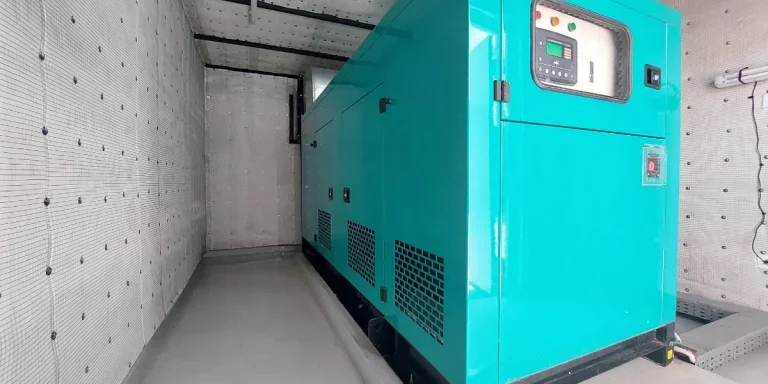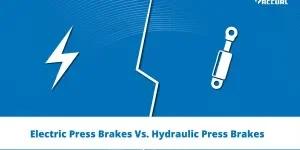Imagine the power going out, lights flickering, and everything falling silent. At that moment, a diesel generator can make a huge difference, stepping in to keep everything running smoothly. Whether consumers are safeguarding a freezer full of food at home or ensuring critical machinery doesn’t stop mid-production, a diesel generator can offer peace of mind and, quite literally, the power to carry on.
But no need to sugarcoat things—choosing a diesel generator isn’t like picking out a toaster. There are many options, and if retailers don’t know what to look for, it’s easy to feel overwhelmed.
The good news? Retailers don’t need to be generator experts to make a smart choice. They just need to know what to look for, and that’s where this guide comes in. This article will break down the must-know features, practical tips, and real-world advice to help businesses find the most reliable diesel generators to sell in 2025.
Table of Contents
What are diesel generators, and why do consumers need one?
Key features to look for when choosing a diesel generator
A real-world example
In conclusion
What are diesel generators, and why do consumers need one?

A diesel generator converts diesel fuel into electricity. It has two main parts: a diesel engine (which burns fuel) and an alternator (which turns mechanical energy into usable electricity). Diesel generators are popular because they are tough, long-lasting, and incredibly fuel-efficient, making them a favorite for heavy-duty use and various applications.
They’re used everywhere, from suburban homes needing backup power during storms to hospitals, construction sites, and remote farms. But here’s the kicker: not all diesel generators are built similarly. Some are portable and compact, while others are massive, stationary beasts designed to run factories. Knowing what consumers need is the first step toward making the right pick.
Key features to look for when choosing a diesel generator
1. Safety features

While safety is important for avoiding accidents, it should also help protect the investment and the people using the generator. Some key features to look for include:
- Overload protection: This feature automatically shuts down the generator if it’s overworked.
- Low oil shutdown: This safety feature prevents engine damage by turning off the generator when oil levels are too low.
- Emergency stops: These let consumers shut everything down instantly if something goes wrong.
2. Durability and weather resistance

If the generator will be outside or in rough conditions, durability isn’t just “nice to have” but something non-negotiable. Here’s what to look for:
- Weatherproof: Enclosures can protect the generator from rain, snow, and dust.
- Rugged materials: Generators with stainless steel or powder-coated surfaces are less likely to rust or degrade.
- Cooling Systems: For hot climates, ensure the generator has a proper cooling system to prevent overheating.
3. Control panels
Gone are the days when operating a generator meant flipping many confusing switches. Modern diesel generators often come with digital control panels that simplify everything. Here are some features worth having:
- Digital displays: These allow consumers to monitor real-time voltage, fuel levels, and load.
- Automatic Transfer Switch (ATS): This handy feature automatically switches the power source to the generator when the grid goes down. Consumers won’t even notice the transition.
- Remote monitoring: Some high-tech models let users control everything from their phones. How cool is that?
4. Noise levels

Generators can be loud. And while that’s fine on a construction site, it’s a no-go in a residential area or quiet office. Fortunately, manufacturers have worked hard to make the modern diesel-powered generator quieter.
How to choose the right option
- Check decibel levels (dB): Aim for a generator under 75 dB for residential use. For context, normal conversation is around 60 dB, while a lawnmower hits 90 dB.
- Look for silent models: Many diesel generators now have soundproof enclosures or advanced mufflers to dampen noise.
5. Power output

Think of power output as the generator’s muscle (measured in kilowatts (kW) or kilovolt-amperes (kVA). If retailers don’t offer the right capacity, consumers could either overpay for the power they don’t need or end up with machines that can’t handle their workload. Here’s how to figure it out:
- Make a list: Create a buyer persona and jot down everything the generator will likely power. For a home, this includes fridges, lights, and the A/C. For a business, it could be computers, servers, or machinery.
- Account for starting watts: Some appliances, like air conditioners, require extra power to start up. Remember to include this in the calculations.
- Add a buffer: Once retailers have tallied everything, add 20–30% extra capacity for wiggle room. Power spikes happen, and this additional power will save the target consumers in such situations.
Example: If the buyer persona runs a small office, they might need a diesel generator rated at 20–30 kVA for their specific needs. On the other hand, a factory could require something 500 kVA or more.
6. Maintenance
No matter how fancy the generator is, it’ll need regular maintenance. Consider it like a car—neglecting basic care can lead to costly repairs. So, businesses must remind buyers to do the following:
- Change the oil and filters: Most generators need this maintenance step every 250–500 hours.
- Inspect key components: Regularly check belts, hoses, and batteries.
A real-world example

Let’s say the buyer persona owns a small restaurant. During power outages, they must keep the fridges running, the lights on, and the air conditioning comfortable for their customers. Here’s how businesses can stock diesel generators for them:
- Power needs: A 25 kVA generator should do the trick incase of long run times.
- Noise Level: Go for a quiet model to maintain a pleasant dining atmosphere.
- Automation: Get an ATS so consumers do not have to scramble to turn on the generator mid-service.
In conclusion
Choosing the perfect diesel generator isn’t rocket science but requires little thought. Retailers can offer a reliable, efficient, and tailored generator by considering the consumer’s power needs, budget, and long-term goals. Remember that consumers aren’t just buying a generator—they’re investing in peace of mind, so business buyers must meet this order with the best product quality.




